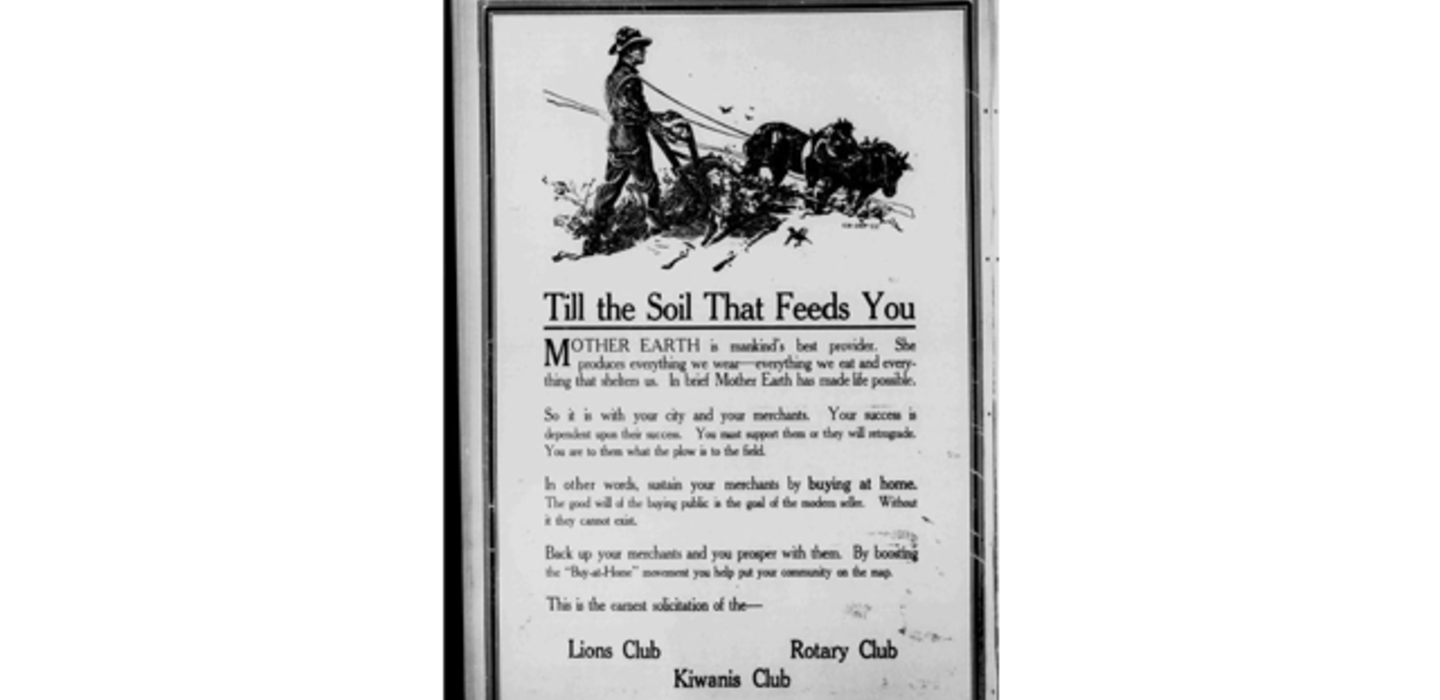Melvin Jones had been a member of the Business Circle of Chicago, a lunch club for business men, for several years when he began pondering a question: "What if these men, who are successful because of their drive, intelligence and ambition, were to put their talents to work improving their communities?"
His club, like hundreds of others across America, was focused on helping members create a business network. The U.S. economy was growing in the early 1900s and opportunities abounded. Yet landing new business still often depended on whom you knew.
In prior generations, associations focusing on religious groups, industries or communities filled the need for socialization and networking among businessmen. But, by the early 20th century, that began to change. Business luncheon clubs promised social and business connections across industries, usually over a hot meal, with a large and eager membership from the growing middle class. Hundreds of these organizations popped up in towns across the United States.
By the time Jones joined the Business Circle of Chicago in March 1913, the competition among clubs for membership was intensifying, and the Business Circle was losing members. Jones realized that for his club to survive, it would have to join together with other smaller clubs. He was also convinced that it had to offer something different.
“I’m finding out that you don’t get very far until you start doing something for somebody else,” Jones said. “And I’m beginning to believe it might help some of these clubs, like The Circle, to take that to heart.”
Larger organizations such as the Elks, the Loyal Order of the Moose and Rotary International, had charitable-service components to their clubs. But Jones wanted to do more. Communities had many needs that called out for someone to take responsibility and help. Youth needed mentors. The hungry needed feeding. The ill needed medical care. Jones envisioned a way to help individuals and communities through volunteer service.
“Any association that presumes to leadership in the community will have to offer something more than business reciprocity among the members,” Jones told his club.
In 1917, Jones had the chance to make service part of the core of an organization. When his Business Circle met with other like-minded clubs at the LaSalle Hotel in Chicago, the groups united to become a greater force for good under the name International Association of Lions Clubs. While fellowship and fun remained a hallmark of each meeting, Lions Clubs took a giant step forward by emphasizing the need to serve.
Read the entire collection of Touchstone Stories at Lions100.org!

